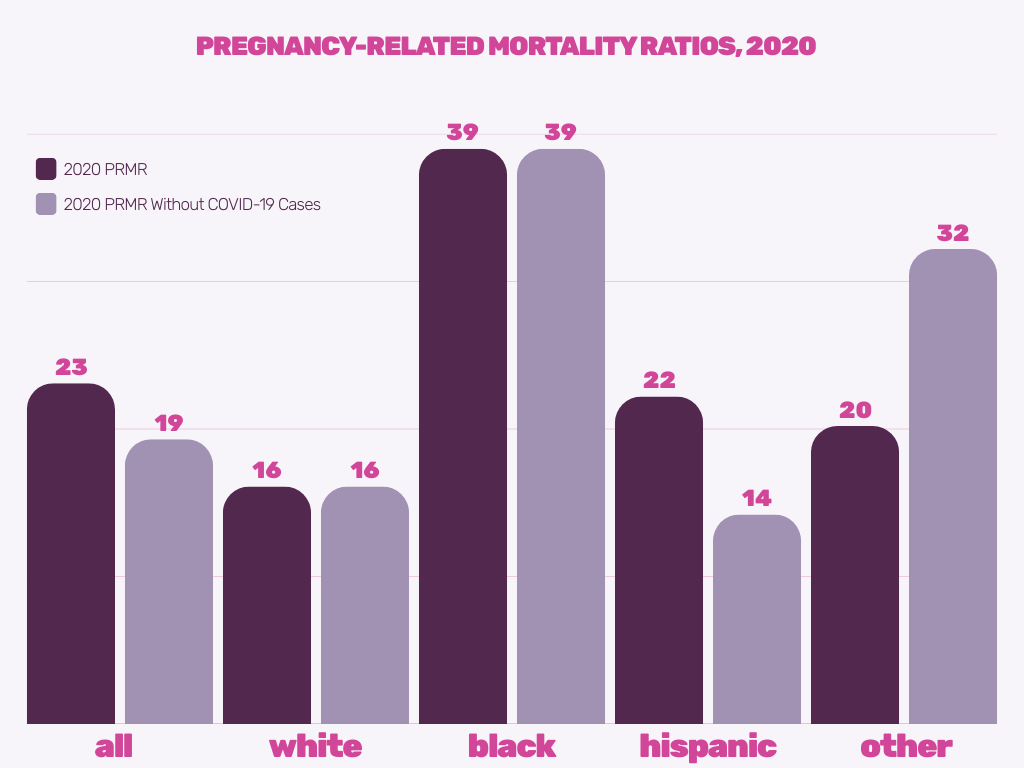Advocating for Better Outcomes for Black Mothers in Texas
At the Texas Women’s Healthcare Coalition (TWHC), we believe that every woman — regardless of race, income, or geography — deserves respectful, high-quality care throughout pregnancy and beyond. But for many black women in Texas, that goal remains out of reach.
During Black Maternal Health Week, observed each year from April 11–17, we’d like to spotlight the experiences of black women and raise awareness about the maternal health crisis that continues to affect black families in Texas.
The Data
Black women in Texas face the highest rates of pregnancy-related deaths and complications. According to the Texas Maternal Mortality and Morbidity Review Committee, black women in Texas have a pregnancy-related mortality ratio of 39 deaths per 100,000 live births — more than 2.5 times higher than that of white women.

The disparities go deeper than statistics. They are persistent and pervasive — existing across age groups, education levels, and income brackets. Let’s consider these examples:
- Education does not protect black women. A college-educated Black woman faces a higher risk of dying from pregnancy-related causes than a White woman who did not finish high school.
- Income doesn’t shield Black mothers. Black women with high incomes are still as likely to die within the first year postpartum as low-income White women.
- Bias in care matters. Black women are more likely to have their pain dismissed during labor due to harmful and false beliefs about pain tolerance. This can result in inadequate treatment and serious health consequences.
This is not a coincidence — it’s a result of deep and persistent barriers that prevent black women from receiving the same quality of care.
Black Infants Also Face Higher Risks
The disparities extend beyond mothers. Black infants in Texas are about twice as likely to die before their first birthday compared to white infants. Texas also ranks poorly when it comes to preterm birth rates and maternal vulnerability in many counties with large black populations, according to the March of Dimes.
What TWHC Is Advocating For
At TWHC, we know these outcomes are not inevitable — they are preventable. That’s why we are advocating for:
- Robust funding for TexasAIM, a statewide quality improvement program that helps hospitals implement best practices in maternal care.
- Expanded access to doulas, who offer culturally responsive, community-centered care that has been shown to improve outcomes and reduce complications, especially for black women.
- Policy solutions that address the root causes, including access to healthcare before, during, and after pregnancy.
A Better Path Forward
As we recognize Black Maternal Health Week, we recommit to making Texas a place where black women can access the support, respect, and healthcare they deserve. That includes advocating for policies and programs that respond to the real challenges black mothers face — from better hospital protocols to culturally responsive care.
Improving maternal health outcomes for black women is not just about statistics — it’s about listening, responding, and making sure every mother is seen, heard, and supported.
Sources:
Texas Maternal Mortality and Morbidity Review Committee, & Texas Department of State Health Services. (2024). Texas Maternal Mortality and Morbidity Review Committee and Department of State Health Services joint biennial report 2024. https://www.dshs.texas.gov/sites/default/files/legislative/2024-Reports/MMMRC-DSHS-Joint-Biennial-Report-2024.pdf
Artiga, S., & Hill, L. (2023, November 1). Racial disparities in maternal and infant health: Current status and efforts to address them. KFF. https://www.kff.org/racial-equity-and-health-policy/issue-brief/racial-disparities-in-maternal-and-infant-health-current-status-and-efforts-to-address-them/